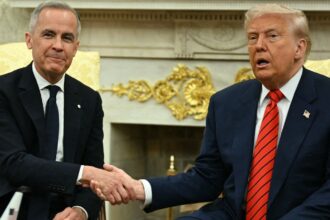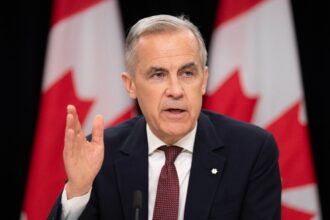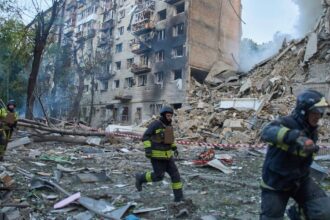In a measured response to escalating Middle East hostilities, former Bank of Canada governor Mark Carney has urged international leaders to pursue diplomatic channels rather than military confrontation. Speaking yesterday during a campaign stop in Ottawa, Carney addressed the recent exchange of missile strikes between Iran and Israel that has heightened fears of regional destabilization.
“What we’re seeing is extremely concerning,” Carney stated, his voice reflecting the gravity of the situation. “The risks of miscalculation are significant, and the potential for broader conflict that engulfs the entire region is real and dangerous.”
Carney, who also previously led the Bank of England, emphasized that while Israel maintains the right to defend itself, the international community must work collectively to prevent further escalation. His comments come as the World News community closely monitors the volatile situation, with many experts warning that continued military exchanges could trigger a wider regional conflict.
The diplomatic veteran’s stance aligns with Canada’s official position, which has consistently advocated for de-escalation in the region. Prime Minister Justin Trudeau has similarly called for restraint, echoing concerns about civilian casualties and humanitarian impacts should the conflict expand.
“What we need is multilateral engagement,” Carney explained, drawing on his extensive international experience. “Countries with influence in the region need to work together to create space for diplomatic solutions before this spirals beyond anyone’s control.”
Economic implications remain a significant consideration, with global markets already showing sensitivity to the conflict. As an economist with deep understanding of global financial systems, Carney noted that prolonged instability could trigger oil price volatility and supply chain disruptions that would affect economies worldwide, including Canada’s.
Regional security experts have validated Carney’s concerns. Dr. Sarah Mohseni, Middle East analyst at the Royal Institute for International Affairs, told CO24 that “the exchange of direct strikes between Iran and Israel represents a dangerous new phase in regional tensions that could easily escalate beyond current boundaries.”
The situation presents particular challenges for Canadian politics, as lawmakers balance support for allies with advocacy for peace. With significant diaspora communities from the affected regions, domestic political considerations add complexity to Canada’s response.
As missiles continue to cross borders in the Middle East, Carney’s call for diplomatic resolution stands as a reminder of what’s at stake. “The question isn’t whether we can afford to pursue diplomacy,” he concluded, “but whether we can afford not to when the alternative may be a conflict that affects us all.”
With regional tensions showing no immediate signs of abating, the coming days may determine whether international diplomatic efforts can prevail over military escalation. What remains unclear is whether world powers possess both the will and capability to broker a sustainable peace in a region where conflict has persisted for generations.











